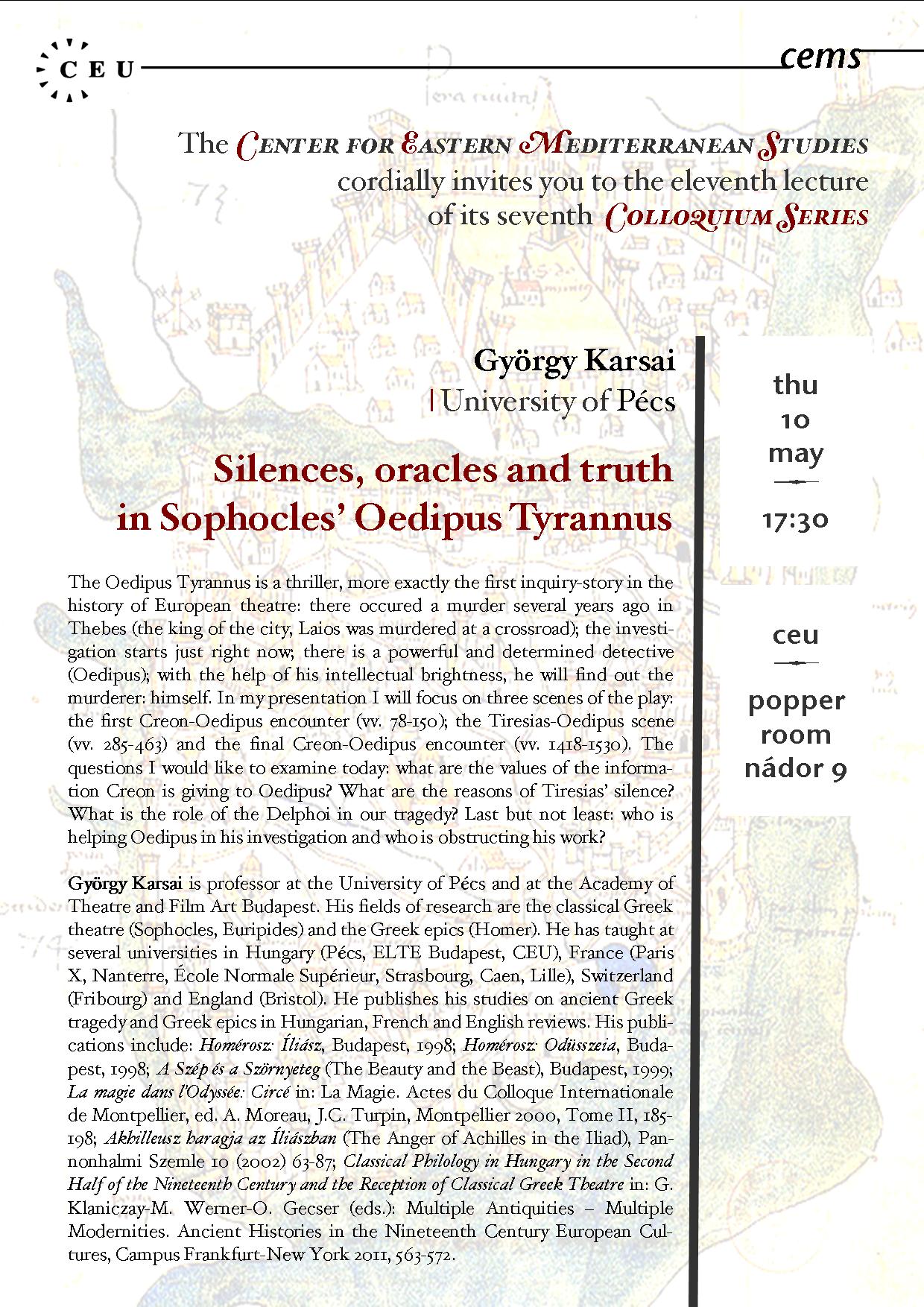The Oedipus Tyrannus is a thriller, more exactly the first inquiry-story in the history of European theatre: there occured a murder several years ago in Thebes (the king of the city, Laios was murdered at a crossroad); the investigation starts just right now; there is a powerful and determined detective (Oedipus); with the help of his intellectual brightness, he will find out the the murderer: himself. In my presentation I will focus on three scenes of the play: the first Creon-Oedipus encounter (vv. 78-150); the Tiresias-Oedipus scene (vv. 285-463) and the final Creon-Oedipus encounter (vv. 1418-1530). The questions I would like to examine today: what are the values of the information Creon is giving to Oedipus? What are the reasons of Tiresias’ silence? What is the role of the Delphoi in our tragedy? Last but not least: who is helping Oedipus in his investigation and who is obstructing his work?
György Karsai is professor at the University of Pécs and at the Academy of Theatre and Film Art Budapest. His fields of research are the classical Greek theatre (Sophocles, Euripides) and the Greek epics (Homer). He has taught at several universities in Hungary (Pécs, ELTE Budapest, CEU), France (Paris X, Nanterre, École Normale Supérieur, Strasbourg, Caen, Lille), Switzerland (Fribourg) and England (Bristol). He publishes his studies on ancient Greek tragedy and Greek epics in Hungarian, French and English reviews. His publications include: Homérosz: Íliász, Budapest, 1998; Homérosz: Odüsszeia, Budapest, 1998; A Szép és a Szörnyeteg (The Beauty and the Beast), Budapest, 1999; La magie dans l’Odyssée: Circé in: La Magie. Actes du Colloque Internationale de Montpellier, ed. A. Moreau, J.C. Turpin, Montpellier 2000, Tome II, 185-198; Akhilleusz haragja az Íliászban (The Anger of Achilles in the Iliad), Pannonhalmi Szemle 10 (2002) 63-87; Classical Philology in Hungary in the Second Half of the Nineteenth Century and the Reception of Classical Greek Theatre in: G. Klaniczay-M. Werner-O. Gecser (eds.): Multiple Antiquities – Multiple Modernities. Ancient Histories in the Nineteenth Century European Cultures, Campus Frankfurt-New York 2011, 563-572.
